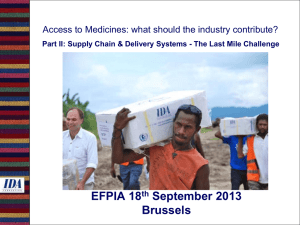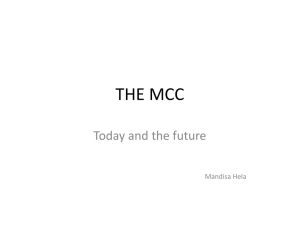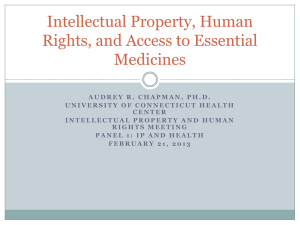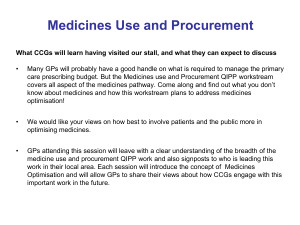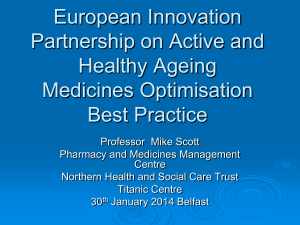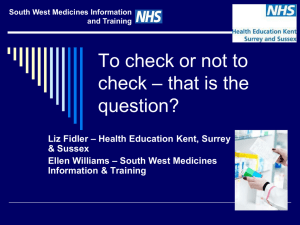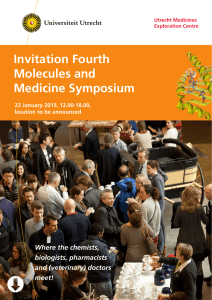Presentation
advertisement
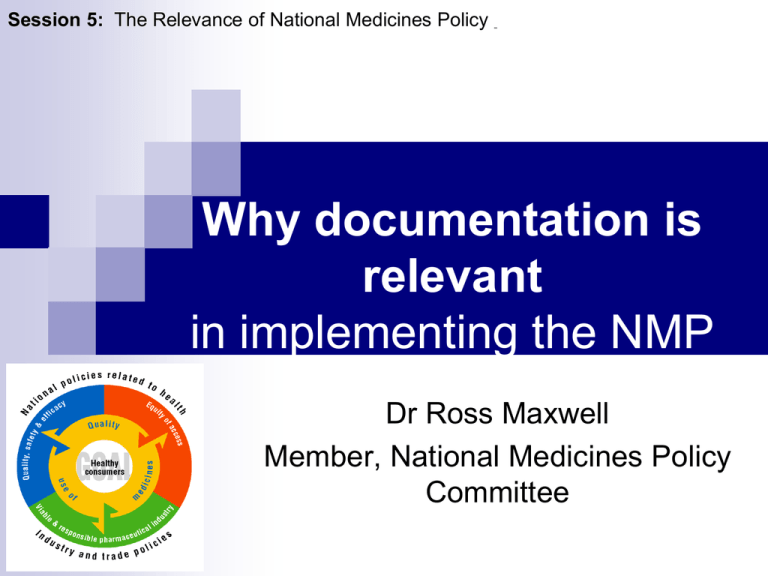
Session 5: The Relevance of National Medicines Policy Why documentation is relevant in implementing the NMP Dr Ross Maxwell Member, National Medicines Policy Committee This presentation Documenting available evidence to inform policy Monitoring medicines in use – their benefits and harms Opportunities in a reforming health system to improve the evidence base National Medicines Policy (NMP) The NMP has four central objectives: timely access to the medicines that Australian’s need, at a cost individuals and the community can afford; medicines meeting appropriate standards of quality, safety and efficacy; quality use of medicines (QUM); and maintaining a responsible and viable “medicines” means prescription, non-prescription and medicines industry. complementary healthcare products www.health.gov.au/internet/main/publishing.nsf/Content/National+Medicines+Policy-1 “This policy recognises the fundamental role consumers have in reaching these objectives” NMP priorities The five key priorities for the NMP are: integrating the medicines policy framework into health system reform; informed and active consumers; evidence into practice and policy; monitoring medicines in use; and informing the research agenda. Monitoring medicines in use Objective - to develop an integrated national approach to monitoring medicines in use to inform decision making at all levels (registration of a medicine through to use by consumers). 2011/2012 Budget Announcement “In 2011-12, the Government will establish a systematic data collection of post- market medicine use and enhance the National Medicines Policy framework to provide evidenced-based advice for decision and action on medicines post-PBS listing. This post-market data will improve cost-effectiveness reviews and education and feedback to consumers, medical practitioners, pharmacists and governing bodies of areas where medicine use may be less than optimal.” NMP Forum Key Themes Need for improved data Better utilization of existing data More effective reporting system Key role of consumers Data Improvement Scope Quality Barriers Data Utilisation Linking data Linking researchers Building capacity Documentation, data, opportunities QUM indicators Dispensing data Prescribing data Hospitalisation data Longitudinal research cohort studies E-documentation in the reforming health system What should be documented? Outcomes related to medicines Safety Effectiveness Cost-effectiveness Quality Monitoring medicines’ outcomes “All science is either physics or stamp collecting.” Ernest Rutherford, in J. B. Birks "Rutherford at Manchester" (1962) Documentation should be Relevant Coordinated Timely Comprehensive Sensitive Conclusion Documenting the evidence is a vital tool to improve the experience of Australians using medicines and to achieve value for Australia’s investment in the PBS



